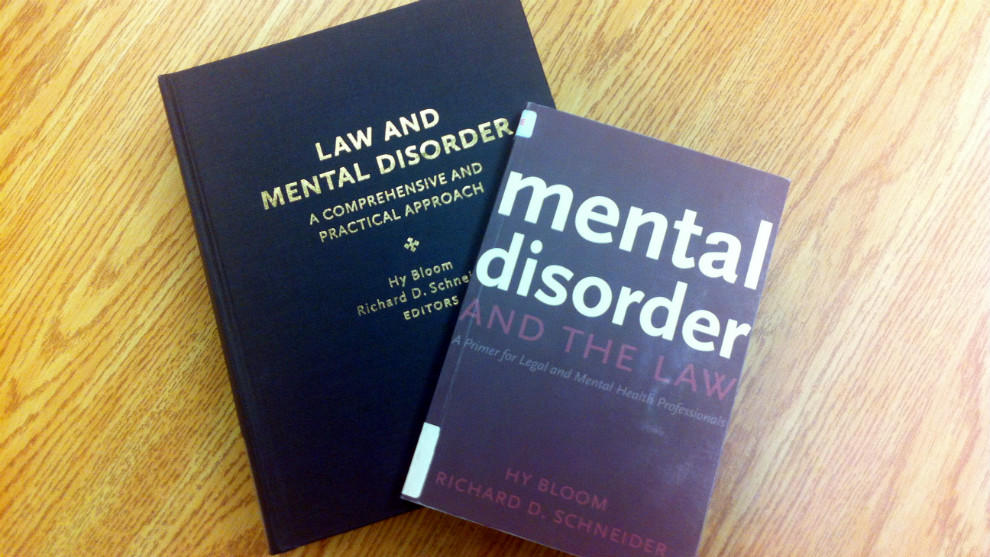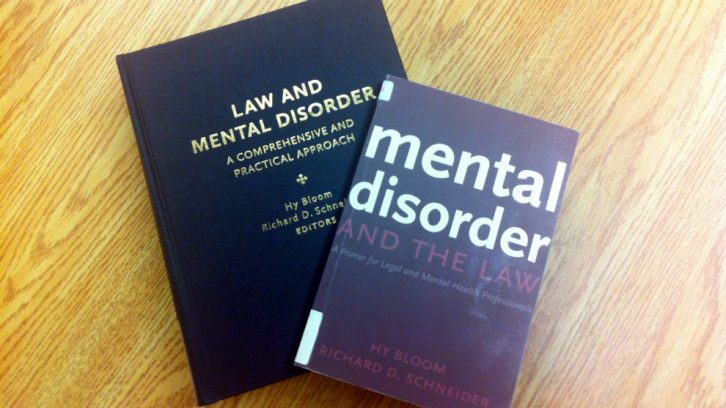Q&A
Randall Shepherd’s forensic psychiatrist on the nature of his work
Dr. Hy Bloom’s report was central to Shepherd's rehabilitation prospects

caption
Dr. Hy Bloom
caption
Dr. Hy Bloom spent a year preparing a report on Randall Shepherd’s rehabilitation prospects; the report was taken into account when he was sentenced.If a Valentine’s Day mass shooting plot at the Halifax Shopping Centre had gone to plan last year, then Randall Shepherd and his co-conspirators would have committed suicide. None of them would have been around to talk about what happened from their perspective.
“That’s where media misconceptions often come out about people,” says Dr. Hy Bloom, a forensic psychiatrist from Toronto who spent a year preparing a report on Shepherd. “You’re working with limited information … there’s a temptation to want to, one way or another, flesh out some detail making the prose better.”
Even though James Gamble, the plan’s leader, committed suicide after police were tipped off, co-conspirators Lindsay Souvannarath and Shepherd were arrested at the Halifax airport. Shepherd wasn’t willing to be part of the shooting itself, but was heavily involved in the planning. Related stories
At Shepherd’s sentencing on Nov. 22, the first major account of the shooting plot’s details came out in court. Included in this discussion were references to Bloom’s report, which involved talking with Shepherd and those who knew him to assess his prospects for rehabilitation.
A graduate of McGill Law School and McMaster Medical School, Bloom doesn’t only work with criminals. Forensic psychiatrists have a wide variety of topics they can be consulted on, though criminals are often their most recognizable clients. Bloom’s last big case in Nova Scotia was examining Glen Race, who killed two men while claiming to be a “vampire slayer” in 2007.
Defence lawyer Roger Burrill said Bloom’s report found that Shepherd didn’t have deep psychiatric issues, but there were five key factors that motivated Shepard’s participation in the plot. They were peer pressure, loyalty to his best friend James Gamble, a suggested notoriety if the plot was successful, a gratification of his interest in gore and violence and payback for a society that didn’t accept him.
Justice Patrick Duncan said that even though the factors would not intersect again in the same way, the report “doesn’t go as far as to say he will not be a danger to the community again.”
The charge of conspiracy to commit murder carries no minimum sentence, so the prospect of rehabilitation is one factor that can be used to argue for a shorter prison sentence. Shepherd was sentenced to 10 years in prison, less time served, as recommended by both the prosecution and defence.
Bloom couldn’t specifically comment on the Shepherd case, but offered The Signal a window into his work.
At what point in a criminal case process are you consulted?
If you have an astute lawyer whose client committed an act recently and they’ve been retained pretty quickly afterwards and there’s an issue around the accused’s mental state at the time they did an act, the lawyer may ask me to capture his mental state as close to the event as possible.
In those circumstances, I may spring into action just by trying to get an hour in. It’s a meet and greet really, but it’s a ‘meet, greet and grab a glimpse of their mental state.’
In cases where that’s not so much an issue, for example, if the courts are really backed up and the case is not a particularly serious one — it’s a more pedestrian kind of matter — then I may be given some time.
When the client is in custody and it looks like their jail sentence wouldn’t be all that long, then the lawyers want me to see the client sooner. The idea here is that they may not need to be in custody too long. If you take a long time and it takes a long time for the client to get to his trial or to his sentencing, he may be spending unnecessary time in custody.
But if it looks like the client is inevitably going to have a very long sentence then (the) time urgency is less (and ) then I can sort of see them at my leisure.
The report on Shepherd took over a year. How long does it take to complete a psychiatric report?
It really varies. Sometimes the parties, whether it’s a civil matter or a criminal matter, identify a real urgency and timeline around the case. That would be one factor I take into consideration. Another factor is the exigencies of my schedule.
Cases of greater complexity often take longer. Cases for example involving dangerous offender matters or complex and highly contentious cases of criminal responsibility may have multiple opinions to contend with and respond to. Also, cases in which the person has a very lengthy psychiatric history or criminal history can involve gathering or reviewing a lot more documentation and records.
Sometimes people have been to multiple institutions; sometimes across the country. Gathering information is sometimes difficult.
Sometimes the psychiatrist gets all the information related to the criminal case and criminal background from the lawyers involved. Often he or she pursues the various records on their own using a consent form. It can be a pretty lengthy and involved process.
Is there ever a clear conclusion to your findings or are there only open ended suggestions?
It depends what the question is. In every scenario, towards the beginning of the report, I’ll say this is my report on so-and-so and it covers his background and the issues you asked me to consider and what you asked me to consider was his mental state at the time he killed his mother, for example. If that’s the issue, then in the conclusions I circle back to it.
I say here’s what I think of his mental state at the time. He has this diagnosis. Here’s what he was thinking. Here’s how his thinking — perceptions, delusions, and all of that — impaired his ability to understand the nature of his act and its legality and morality.
The reports do typical things that other psychiatric or medical reports do. They provide background, review health history, say things about the client’s childhood and family and note any notable findings in his current mental state. Then we link our findings to the conclusions and to the issue at hand.
What happens when you do a report and it suggests rehabilitation is less likely?
Speaking broadly, judges take a number of considerations into account when they sentence somebody.
One is rehabilitation, if it’s humane and reasonable and in the interest of everyone to try to rehabilitate somebody to reduce their risk and to meet the needs of everybody in society.
The long and short of it is, the more unworkable somebody is, the less value the factor of rehabilitation is in their sentencing. It’s a sort of calculation that considers four or five different factors and if one factor really isn’t of much value then it probably won’t get a high degree of attention.
If the accused’s moral culpability and capacity for rehabilitation are the forefront factors, being less likely to be rehabilitated may result in more jail time.
Was there one of the five factors that stood out as being more unique to Shepherd’s case?
(That is) too close to the subject matter of the case. If you want a more generic kind of response, in some cases the territory is less well-known. When you’re dealing with people who commit homicides as a byproduct of an extreme bout of mental illness, this is something that people who do my kind of work know quite well. We understand mother killing, father killing, kid killing, all that kind of stuff that occurs in the context of severe mental illness.
To go to another example, we don’t understand terrorist killers as much. We don’t understand mass killers or rampage killers as much as we do the sort of typical categories of people whose offences are more common and there’s a larger representative group around to talk to about that.
A lot of people who commit extreme workplace violence, like homicides (or) like the Columbine clients, end up either killing themselves or getting killed expectantly in the battle. This doesn’t leave a lot of people to study afterwards.
This interview has been condensed and edited.

